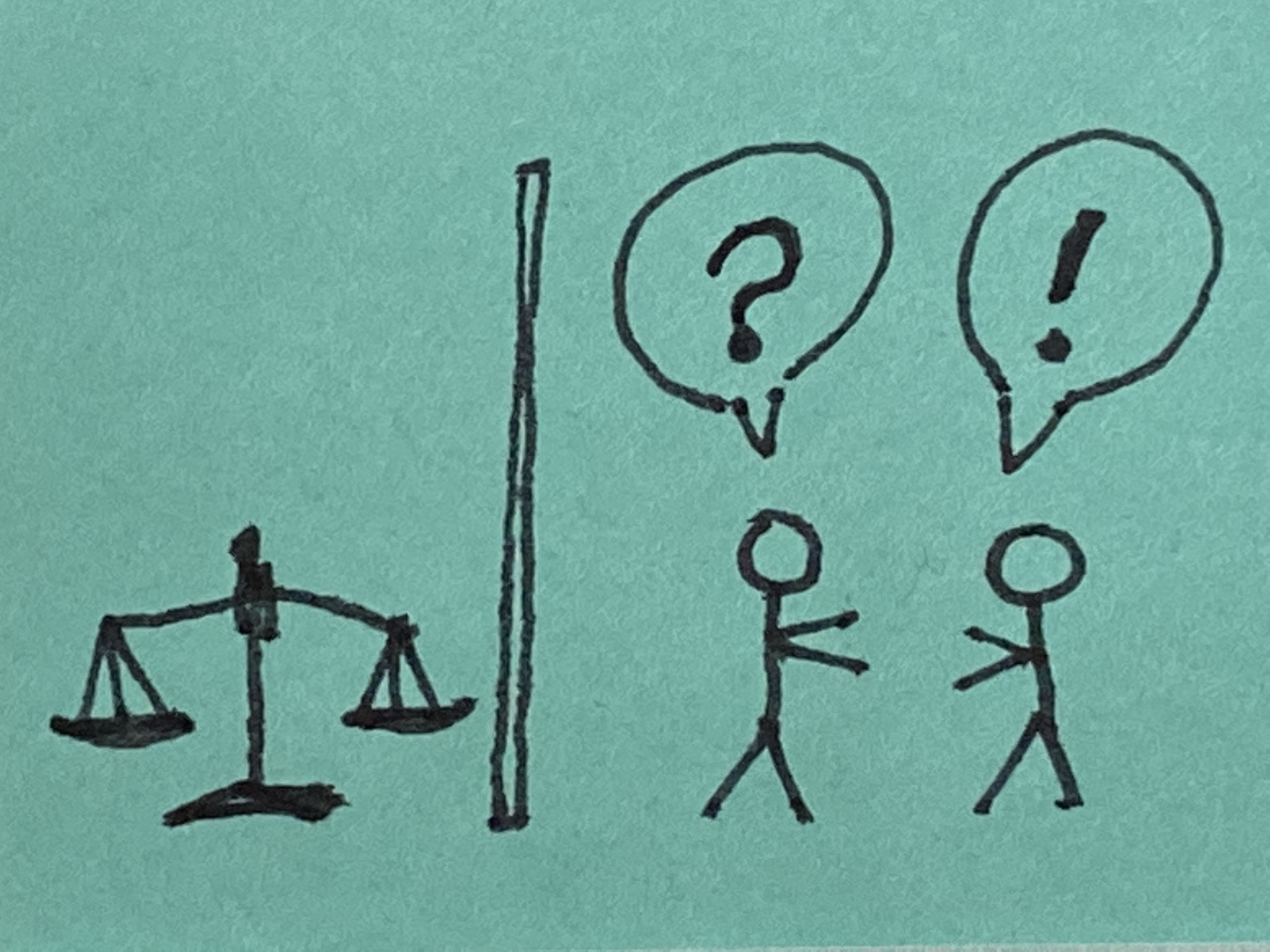Suspended Judgement
Regarding the actions and motives of others, keep your mind open and flexible.

according to Uncertain Knowing and Hidden Complexity, there is always more to the story, so it’s important to stay open to new information.
If our thinking were a courtroom, we’d often be guilty of rushing to a judgement and prematurely closing the case.
“Be curious, not judgmental.” — attributed to Walt Whitman
-
For many of us, especially when we’re dealing with other people, our minds are like courtrooms. We listen to testimony and eye-witness reports trying to determine what happened. We search our understanding of the people involved and look for possible motives. These are basic ways for us to understand a situation, so they’re not bad in themselves, but the courtroom model includes a couple of things that get in the way of finding truth in everyday life:
-
There’s a built-in accusation. A courtroom is a place to resolve conflicts, so by using a courtroom model, you’re already assuming a conflict. You’re already judging that something is wrong.
-
There’s a strong need to close the case. Courts are designed to come to a conclusion based on the facts available. The whole idea is to make a judgement so that everyone can move on. The jury can’t be deliberating forever; we have to come to a determination as to what is the truth.
-
-
Courts are understood to be imperfect. Courts make mistakes and sometimes sentence innocent people, and a big reason for that is that a court has to be inflexible. It has to take what is inherently grey and make it black or white. It’s not a good model for thinking in general, and when you’re trying to collaborate with a group of people, it really gets in the way.
-
Suspending judgement is one of the methods that helps keep our minds open. In that sense, it’s a close cousin of Uncertain Knowing which helps us avoid unwarranted certainty, Many Explanations which helps us avoid jumping to conclusions, and even Humility which helps us avoid letting our pride interfere with learning. By withholding judgement, you’re letting the jury continue to consider evidence, and not closing the case (or your mind) prematurely.
Therefore:
Especially when dealing with the actions and motives of other people, hold back from reaching firm conclusions and keep your understanding flexible.
A good practice for holding back judgement is to look for Many Explanations when trying to explain how something came to be; suspending judgement is an aspect of Dialogue, one of the Brainstorm rules, and it even seems to be foundational to Mindfulness where you’re asked to just accept the experiences you get without judgement